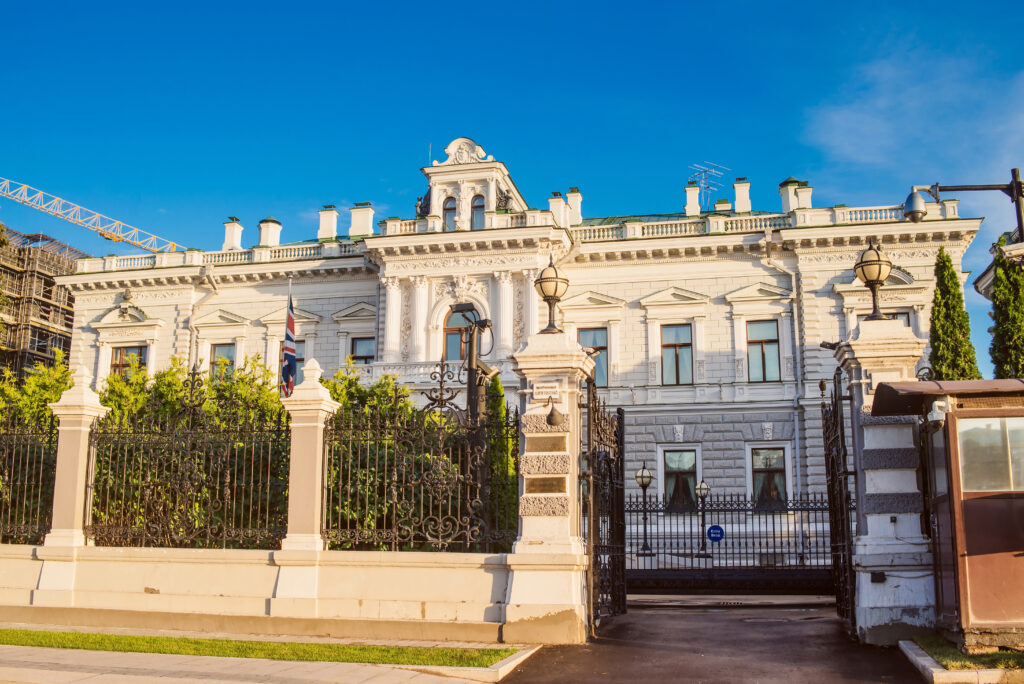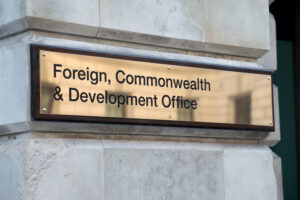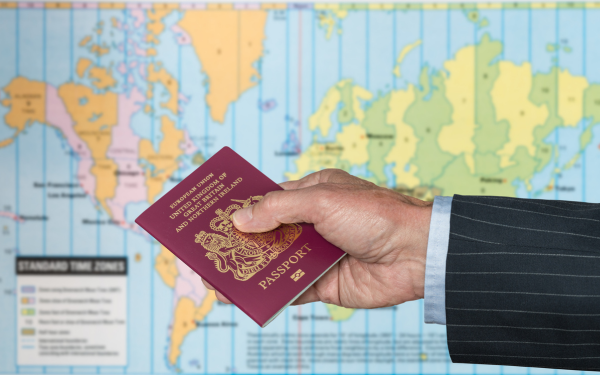Photo: AdobeStock/Steheap
Sarah Erlacher’s neighbour once called her “a social worker of the world” and she quite literally is. She assists on cases where British adults abroad have become homeless, run out of funds or have been a victim of a crime, and it is her job to advise on cases involving British prisoners in jails abroad.
A large part of her role involves helping people settle back into the UK when their visa has expired or after an incident abroad. This can involve contacting family in the UK or signposting them to services they may need.
“Quite often people decide to come back to the UK thinking they will get access to housing and financial support straight away, but unfortunately that’s not the case, so we have to advise people what [coming back] may look like,” says Erlacher.
She is one of four practitioners that supports the Foreign, Commonwealth and Development Office (FCDO) to assist British nationals overseas.
Erlacher and her colleagues have various specialisms and are employed by Heathrow Travel Care, a charity set up to help people in crisis at Heathrow Airport.
The team of social workers is seconded to the FCDO, which employs 17,000 staff in the UK and its 237 British embassies, consulates and high commissions across the world.
Consular staff are not trained to advise people on issues that would usually require social services involvement. When vulnerable people are involved, staff can seek advice from the specialist social work team.
The four social workers do not hold cases directly but instead provide specialist advice when consular colleagues ask them for help.
British nationals can call the nearest British embassy, high commission or consulate, or the FCDO in UK, at any time. They consider all requests for assistance and have published guidance on how they can help in different circumstances. However the FCDO is not legally obliged to provide assistance to any British citizen under any current law.
The consulates abroad act as a front door for British nationals in distress. Referrals can come through in many ways, from friends, family members, concerned neighbours, healthcare professionals or the police.

Photo: Blanscape/AdobeStock
What does the team do?
Team manager Steve Davenport specialises in cases that involve older adults aged 65 and over.
“We’re giving advice based on our UK experience, knowledge and skills, but we also need to be mindful that doesn’t just automatically translate into the country the British national is in. So we’re relying on the expertise of our colleagues in that country to tell us what it is like on the ground. That will help shape the advice we give to them on how to manage that case.
“We could have two 85-year-olds with dementia, one is in Spain and one in Cambodia, so service provision or what might happen in that country can be really different,” he says.
Davenport explains that because of the different types of provision, or due to lack of services or funds, it is often best for the individual to come back to the UK.
Where the British national has a connection to a particular area, such as a previous home or a relative who lives there, that local authority will be contacted.
“On a daily basis, as a team, [we are] speaking to adult and children’s social care teams dotted around the UK trying to either get information or share information, or give them warning that somebody is coming back,” he says.

Photo: LN/AdobeStock. British Embassy in Moscow
Children and families
Child welfare and safeguarding specialist Annika Dann’s cases often involve child abductions, domestic abuse, and general safeguarding concerns.
“We have a clear policy on what consular staff can and can’t do in cases involving children. My role is looking at [the case] and applying the principles of UK safeguarding. At the same time, we have to recognise that in another country’s jurisdiction, their legislation applies,” she says.
Some countries have very different approaches to child protection and safeguarding to the UK’s. Dann is reliant on British embassy colleagues to inform her what provision there is to safeguard children in that specific country.
As consular staff are not social workers, they cannot visit children and families and investigate concerns. Part of Dann’s role is to work out if a concern has reached the threshold to involve authorities in the country in question and what action, if any, can be taken.
“There are a lot of domestic abuse cases where one parent wants to leave the relationship with children in their care, but faces challenges to leave the country or return to the UK without the other parent’s consent,” she says.
Dann and colleagues can signpost to services, such as local refuges, or to legal advice for cases involving child abduction, where one parent takes a child across borders without the other’s consent.
“It’s obviously much more challenging in countries where there [aren’t] equivalent social services or a child safeguarding framework and it can be quite limited in what we can do to support. But it’s a collaborative approach where everybody is drawing on their own expertise and knowledge to try and find the best option for the child.”
When British tourists have been involved in domestic or substance abuse abroad and will be returning to the UK, Dann will decide whether they should be flagged to social services. She can also request information from a local authority to help her decide what to do.

Photo: Dominic Dudley/AdobeStock. Sign by the main entrance of the FCDO London, UK.
Mental health
Where there is an obvious primary mental health need, Chris Heywood, the approved mental health professional (AMHP) in the team, will assist. Mental health problems appear across the entire spectrum of what the team does so often there is overlap with cases and the team must work closely together.
Although there has been a lot of progress in the UK in recent decades on the provision of mental health services, this is not always the case in other countries.
“Mental health is still incredibly under-resourced. In many countries, it’s not spoken about – it’s stigmatised – all of the things that used to be more applicable to the UK. Indeed in a lot of countries, there’s no such thing as mental health, it’s not even recognised in law,” says Heywood.
Family members or social workers may flag up a person abroad who needs intervention due to mental health problems but often there is no legal framework in place for this to be possible.
“It can be incredibly difficult,” says Heywood. “Sometimes it really is going back to basics and doing the investigative work. What’s this person’s background? What has helped them in the past? Are there any strategies we can deploy to help this person, given the lack of resources in whichever country they are in? And are there any resources that we know of that may not be apparent to the individual, to which we can signpost or refer them?”
Often the team can be left frustrated when they are unable to proceed because a country does not have the legal framework or guidance in place.
“People, understandably so, become increasingly frustrated or even angered with us for what they perceive as a failure to act or [us] wilfully neglecting to act.
“But actually it’s not for our lack of trying or wanting to provide the assistance this person might need. But where things fall outside of our remit, or if there’s no legal basis for us to do the things that people would like us to do, it may be that there is nothing we can do or indeed, that we are not permitted to do things that people would like us to do. A good example would be where we cannot share information with family members due to GDPR,” says Heywood.
Training
Delivering training and attending conferences in the UK and abroad is an important part of working for FCDO. This gives the team a chance to learn about different social work cultures, look at what services might be available in different regions and impart their own knowledge.
Davenport says: “It’s a real perk and privilege of the job. […] If time allows we can sometimes spend a bit of time with the consular team in that country and go to visit services, social care teams if they exist, hospitals, be that general or psychiatric, care homes, prisons, immigration detention centres – all the places that British nationals end up.”

